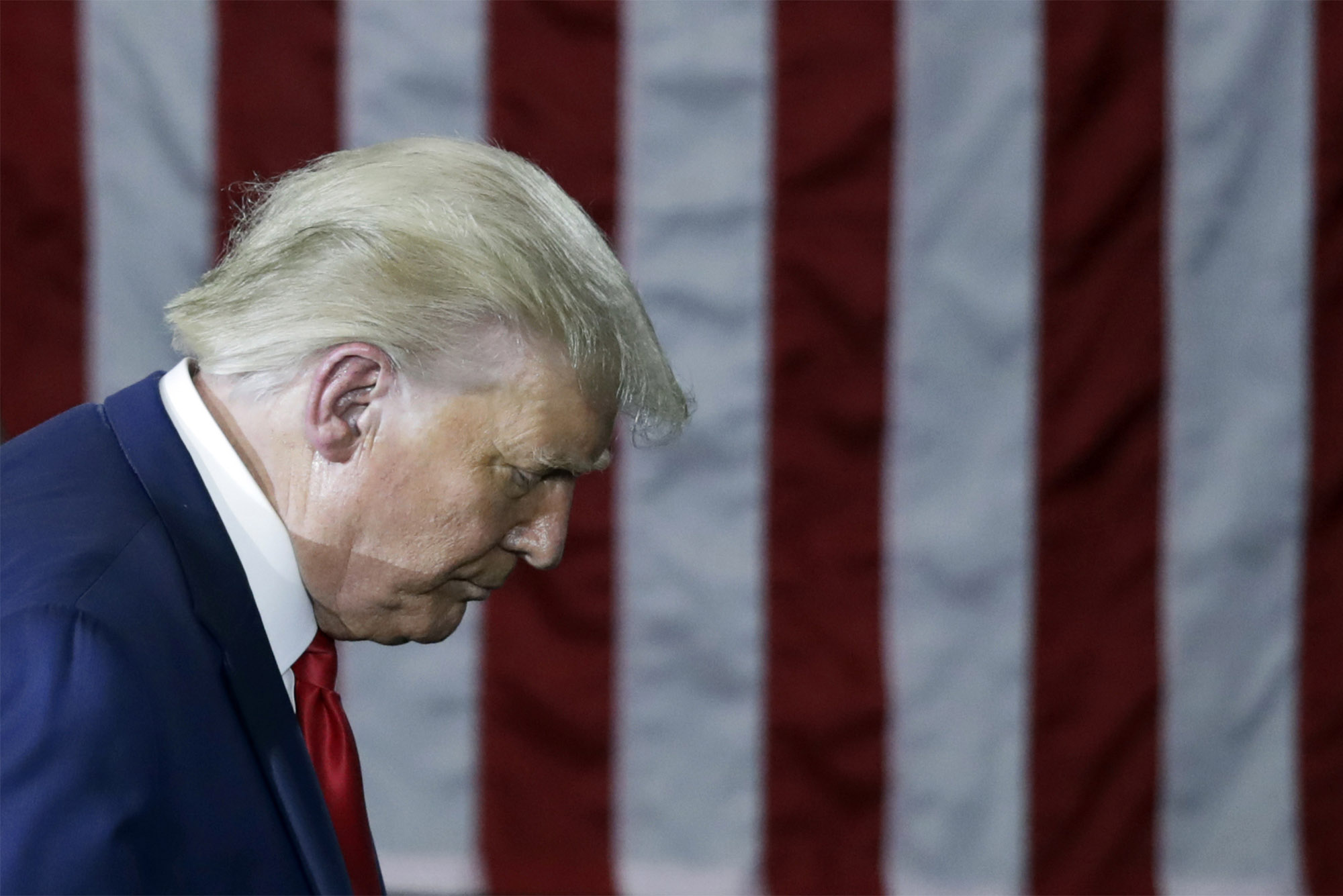NEW YORK: Donald Trump must pay $354.9 million in penalties for fraudulently overstating his net worth by impersonating creditors, a New York judge ruled on Friday, handing the former US president another legal setback in a civil dispute that threatens his real estate empire.
Judge Arthur Engoron also barred Trump, who is running for re-election this year, from serving as an officer or director of any New York corporation for three years in a sharply worded ruling issued after a contentious three-month trial in Manhattan. Trump’s lawyer, Alina Habba, has vowed to appeal.
Reversing his previous ruling in September ordering the “dissolution” of companies that control the pillars of Trump’s real estate empire, Engoron said Friday that it was no longer necessary as he appointed an independent director of monitoring and compliance to oversee Trump’s businesses.
In the ruling, Engoron wrote that Trump and the other defendants in the case “are unable to admit the error of their ways.”
“Their complete lack of remorse and remorse borders on the pathological,” Engoron wrote. “Instead, they adopt a ‘See no evil, hear no evil, speak no evil’ attitude that the evidence denies.”
The suit, filed by New York Attorney General Letitia James, accused Trump and his family firms of overstating their net worth by $3.6 billion a year over a decade to trick bankers into giving him better credit terms. Trump, who faces criminal charges in four other cases, called the lawsuit a political vendetta against James, a Democrat.
In a statement, Habba said the decision was a “manifest injustice” and “the culmination of a multi-year, politically fueled witch hunt” against Trump.
“It’s not just about Donald Trump — if this decision stands, it will send a signal to every single American that New York is no longer open for business,” Habba said.
Engoron also barred Trump and his companies named in the lawsuit from applying for loans from any financial institution chartered in New York for three years, which could limit his ability to get credit from major US banks.
The judge said Trump and his companies’ past run-ins with the law were part of the reason for the stiff sentences. The Trump Organization was found guilty of felony tax fraud in 2022, and two other entities Trump managed previously settled allegations of wrongdoing brought by New York state.
“Defendants are likely to continue their fraudulent ways unless the court grants significant injunctive relief,” Engoron wrote.
The case was decided by a judge without a jury.
The defendants in the case were Trump and his adult sons, Donald Jr. and Eric. Donald Jr. and Eric Trump were ordered by a judge to pay $4 million.
Attorney for Eric and Donald Jr. Clifford Robert called the decision a “gross injustice” and said he “strongly believes” it will be overturned on appeal.
The presidential race
The judge’s ruling could deal a major blow to Trump’s real estate empire, even as the businessman-turned-politician leads the race for the Republican nomination to challenge Democratic President Joe Biden in the Nov. 5 U.S. election.
During defiant and meandering court testimony in November, Trump admitted that some of the values of his assets were inaccurate, but insisted that banks were required to do their own due diligence.
Engoron criticized Trump for his behavior during his court testimony — and wrote in the ruling that the testimony hurt his case.
“Donald Trump rarely answered questions and often made long, irrelevant speeches about matters far beyond the scope of the court proceedings,” the judge wrote. “His refusal to answer questions directly, or in some cases at all, has seriously compromised his credibility.”
Trump could be required to pay his portion of the full judgment plus interest during the appeal. Trump could also provide a smaller amount with collateral and interest by securing a type of loan called an appeal bond. But he may struggle to find a willing lender after Engoron was found to have lied to banks about his wealth.
It’s unclear how much cash Trump has access to, and estimates of his wealth vary, with Forbes estimating his net worth at $2.6 billion. Trump testified in an April deposition that he had about $400 million in cash.
Trump could potentially cash out his majority stake in his social networking app Truth Social, which is now worth about $4 billion. Trump will be able to sell shares of the combined company six months after the merger is completed, according to a regulatory filing. US financial regulators approved the deal this week.
While Trump could also sell parts of his real estate portfolio to comply with the ruling, it’s unclear how much his holdings are worth, and selling them could take some time. Trump will not be able to use campaign funds to pay the judgment because the case, according to some legal experts, was unrelated to his campaign or his conduct as president or a political candidate.
Disputed court
Trump has used his occasional court appearances as impromptu campaign stops, making inflammatory remarks to reporters and insisting that his enemies are using the courts to prevent him from recapturing the White House.
Trump is indicted in four criminal cases, including one in New York related to secret payments to a porn star before the 2016 election. The judge overseeing the case on Thursday set a trial date of March 25 over the objections of Trump’s lawyers, who sought to delay it due to Trump’s busy legal and political schedule.
Trump has also been indicted in Florida for handling classified documents while leaving office, and in Washington and Georgia for trying to reverse his 2020 election loss.







